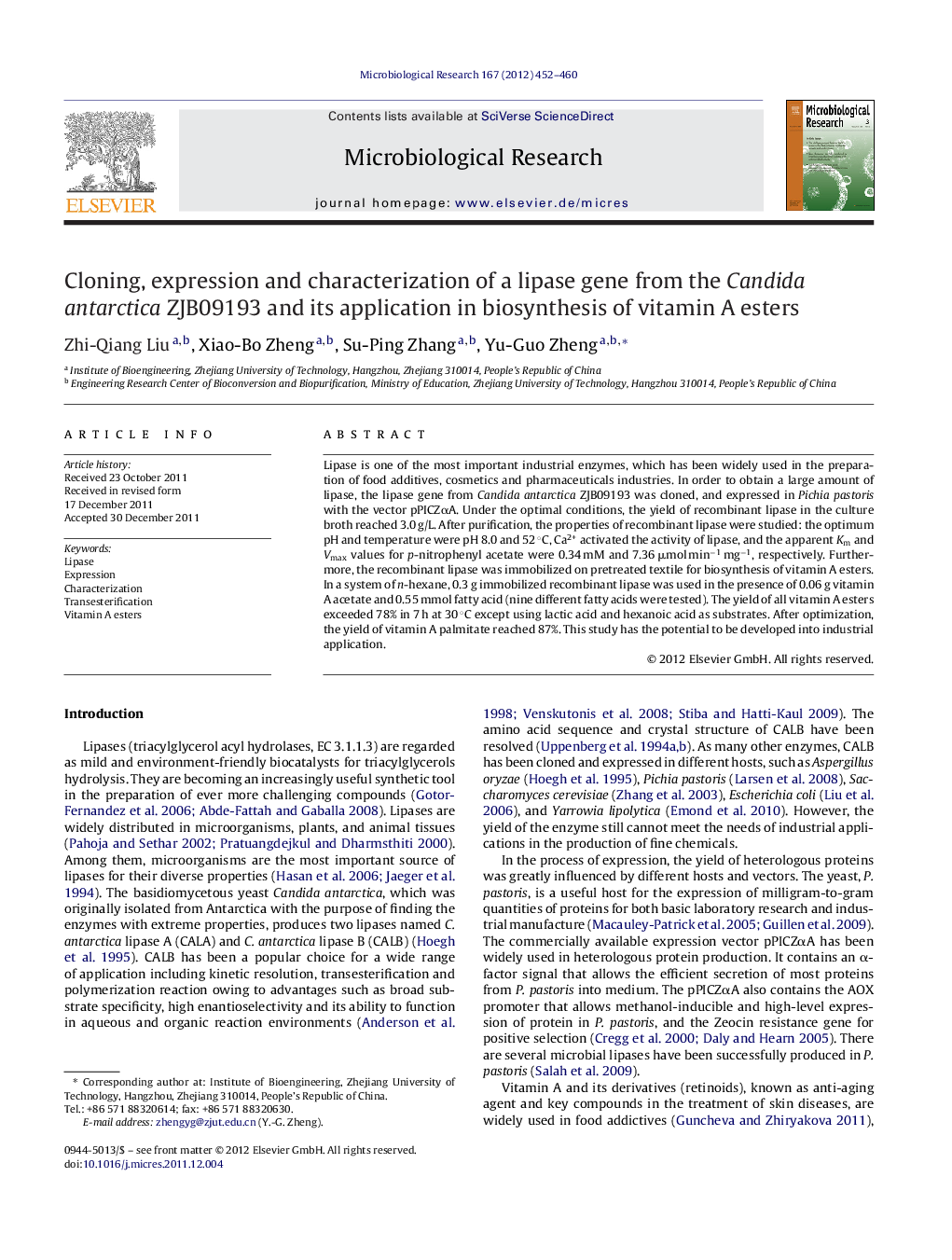| Article ID | Journal | Published Year | Pages | File Type |
|---|---|---|---|---|
| 2092507 | Microbiological Research | 2012 | 9 Pages |
Lipase is one of the most important industrial enzymes, which has been widely used in the preparation of food additives, cosmetics and pharmaceuticals industries. In order to obtain a large amount of lipase, the lipase gene from Candida antarctica ZJB09193 was cloned, and expressed in Pichia pastoris with the vector pPICZαA. Under the optimal conditions, the yield of recombinant lipase in the culture broth reached 3.0 g/L. After purification, the properties of recombinant lipase were studied: the optimum pH and temperature were pH 8.0 and 52 °C, Ca2+ activated the activity of lipase, and the apparent Km and Vmax values for p-nitrophenyl acetate were 0.34 mM and 7.36 μmol min−1 mg−1, respectively. Furthermore, the recombinant lipase was immobilized on pretreated textile for biosynthesis of vitamin A esters. In a system of n-hexane, 0.3 g immobilized recombinant lipase was used in the presence of 0.06 g vitamin A acetate and 0.55 mmol fatty acid (nine different fatty acids were tested). The yield of all vitamin A esters exceeded 78% in 7 h at 30 °C except using lactic acid and hexanoic acid as substrates. After optimization, the yield of vitamin A palmitate reached 87%. This study has the potential to be developed into industrial application.
